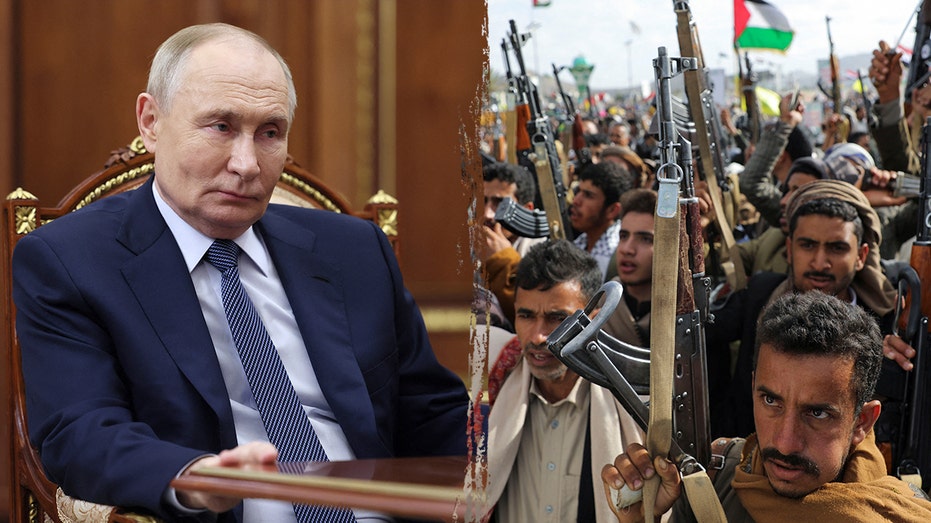
Russia’s Recruitment of Yemeni Fighters for War in Ukraine
Amidst significant military losses, Russia is turning to foreign fighters, including Yemeni men, to bolster its forces in Ukraine, raising serious ethical concerns.
Coercive Recruitment Tactics
According to a report by the Financial Times, Russia is reportedly recruiting hundreds of Yemeni men to join its military efforts in Ukraine under misleading promises of jobs and citizenship. Collaborating with the Houthi rebel group, this operation allegedly employs a trafficking network managed by affiliates of the Houthis to lure unsuspecting recruits.
The Yemeni recruits were reportedly led to believe they would secure high-paying jobs and acquire Russian citizenship. However, the reality upon their arrival in Russia has been starkly different. Many of these recruits found themselves coerced into military service, with some even facing gunpoint contracts before being deployed to the front lines in Ukraine with minimal training.
Ukraine’s Response
A senior defense official from Ukraine corroborated these allegations, confirming that Russia is actively seeking foreign mercenaries from economically struggling countries and their geopolitical allies. “Yemen is among these nations,” stated the official, adding that while the current number of Yemeni conscripts is low, they are nonetheless being used as “cannon fodder” for Russia’s military ambitions in Ukraine.
Ukraine’s Ministry of Defense has emphasized that the Kremlin is expanding its mercenary networks globally, bringing a range of foreign fighters into the conflict to mitigate its losses. “Russia has recently escalated this war by incorporating foreign fighters, including North Koreans, and increasing its use of ballistic missiles in Ukraine,” the ministry reported.
The Human Cost of Recruitment
Reports indicate that recruitment initiatives began as early as July, with at least 200 Yemeni men being forcibly conscripted and sent to the front lines by September. A poignant video shared by a London-based media outlet reveals a group of Yemeni men in Ukraine, expressing their desperation and highlighting the grim reality of their situation. One recruit described a fellow soldier’s attempted suicide due to the immense pressure and horror of war, only to be coerced back into service after hospitalization.
“We are under bombardment,” stated the man recording the video, encapsulating the harrowing experiences they face—illustrating their exhaustion while engaged in perilous tasks such as digging trenches and managing mines.
Russia’s Reliance on Foreign Fighters
The increasing conscription of foreign fighters underscores Moscow’s reliance on external forces to compensate for substantial military defeats. U.S. diplomats have noted that this collaboration with the Houthis illustrates the extent of Russia’s dependence on foreign assistance amid significant casualties. Ukraine’s Ministry of Defense estimates over 730,000 Russian casualties since the conflict began nearly three years ago, including approximately 115,000 fatalities and 500,000 wounded soldiers.
The push for foreign combatants extends beyond Yemen. North Korea is believed to have dispatched around 12,000 troops, while impoverished nations such as India and Nepal have sent men lured by promises of lucrative employment. Reports indicate that Indian Prime Minister Narendra Modi even brought this issue directly to Russian President Vladimir Putin, seeking the return of Indian nationals conscripted through these deceptive schemes. Similarly, around 15,000 Nepali men are believed to have been mobilized into Russia’s military ranks, highlighting a disturbing trend of exploiting economically vulnerable populations for military objectives.
Geopolitical Implications of Collaboration
Russia has forged closer ties with Iran and its affiliated groups, including the Houthi rebels, since the onset of its war in Ukraine in 2022. Although the exact nature of what Russia has offered the Houthis for their support remains unclear, the Kremlin is known to have provided them with targeting intelligence for attacks on Western naval forces operating in the Red Sea. Reports suggest that Houthi delegations have visited Moscow multiple times this year to engage in discussions with high-ranking Russian officials.
The specifics of arms trades or formal agreements between Russia and the Houthis are not transparently reported. Nonetheless, this alliance illustrates the increasingly interconnected geopolitical landscape, with Russia reaching out to Iran-backed groups to fortify its military campaign in Ukraine. The U.S. State Department has yet to issue a public statement regarding these developments.
Ethical Concerns Around Recruitment Practices
As Russia grapples with substantial battlefield losses, its growing reliance on foreign fighters from impoverished nations raises critical ethical and legal questions surrounding its recruitment strategies. The use of coercive tactics to enlist vulnerable individuals not only highlights the desperation of the Kremlin’s military endeavor but also reflects a troubling willingness to exploit economic hardship for martial purposes.
The unfolding situation in Yemen, coupled with Russia’s broader strategy to recruit from various impoverished nations, poses a dire narrative of exploitation and manipulation amid global conflicts. The international community must recognize these patterns and address the ramifications of such practices, which threaten to further entrench the cycle of violence and human suffering in regions already battered by war.


















